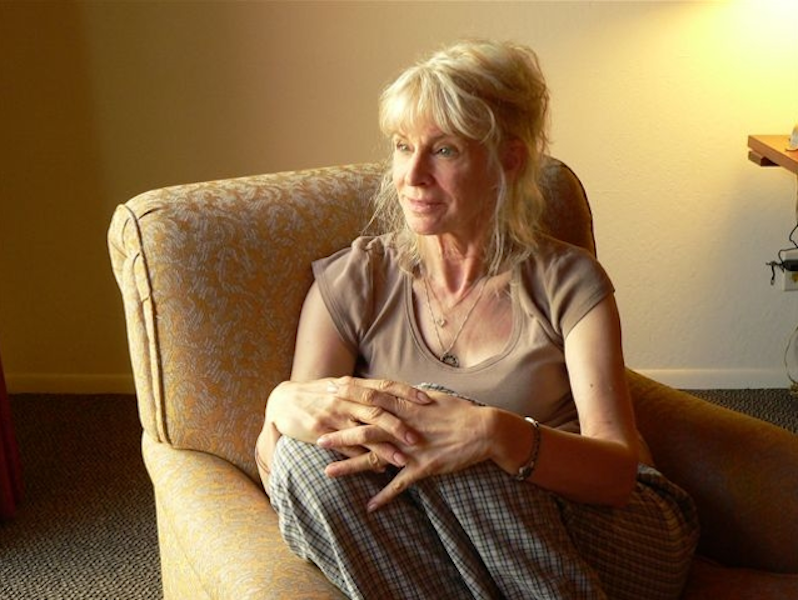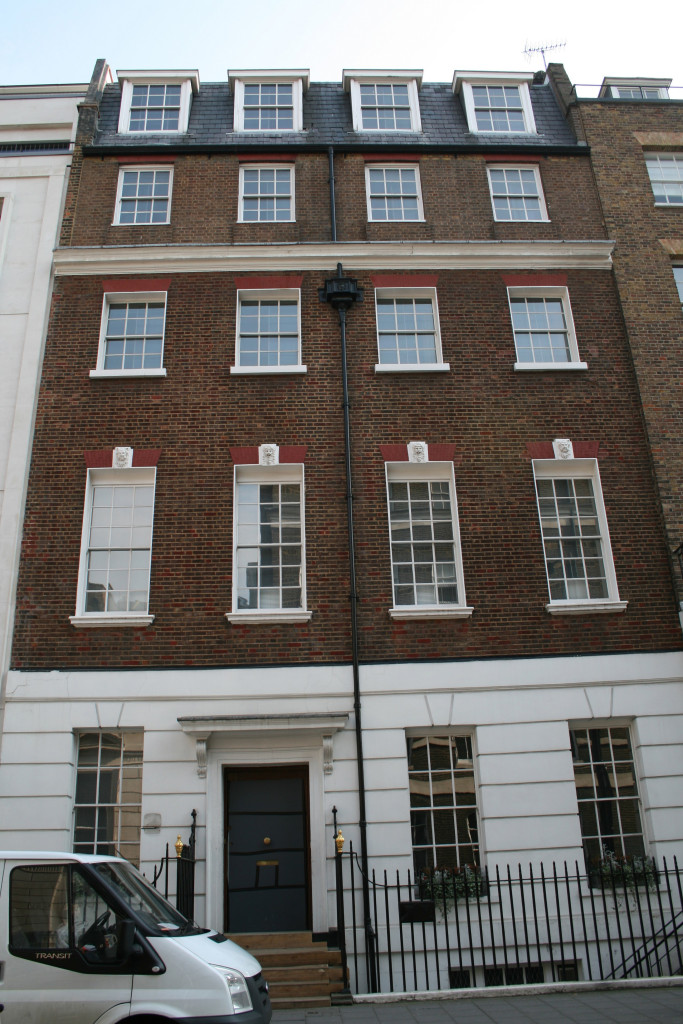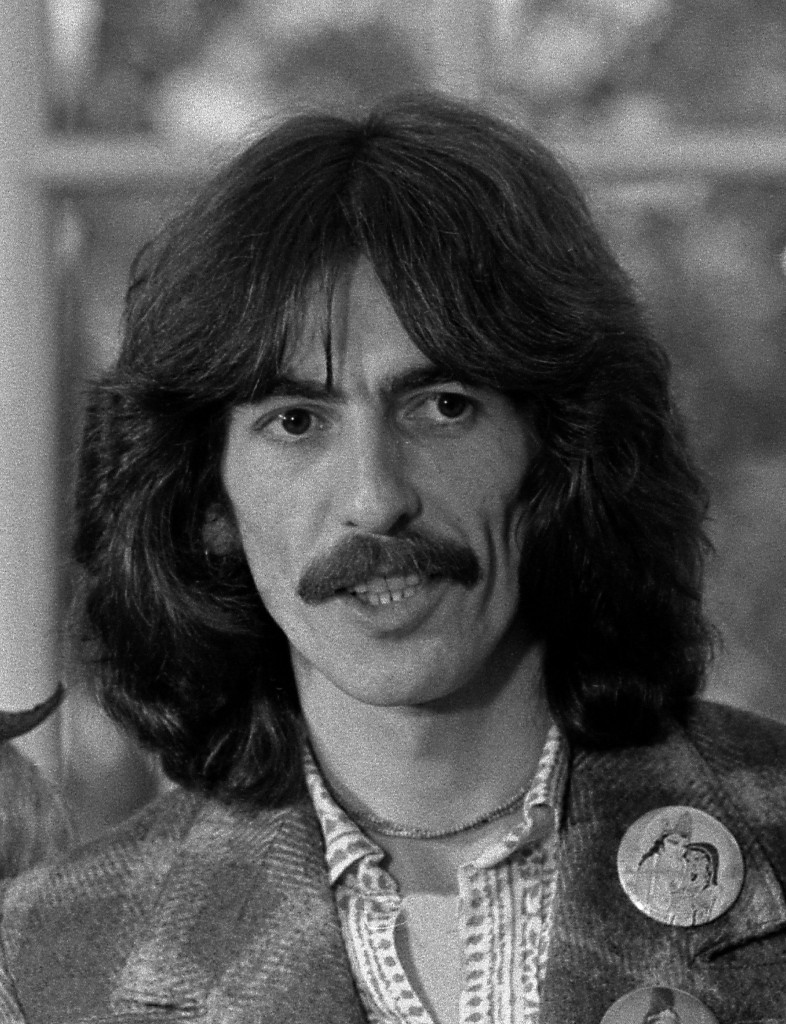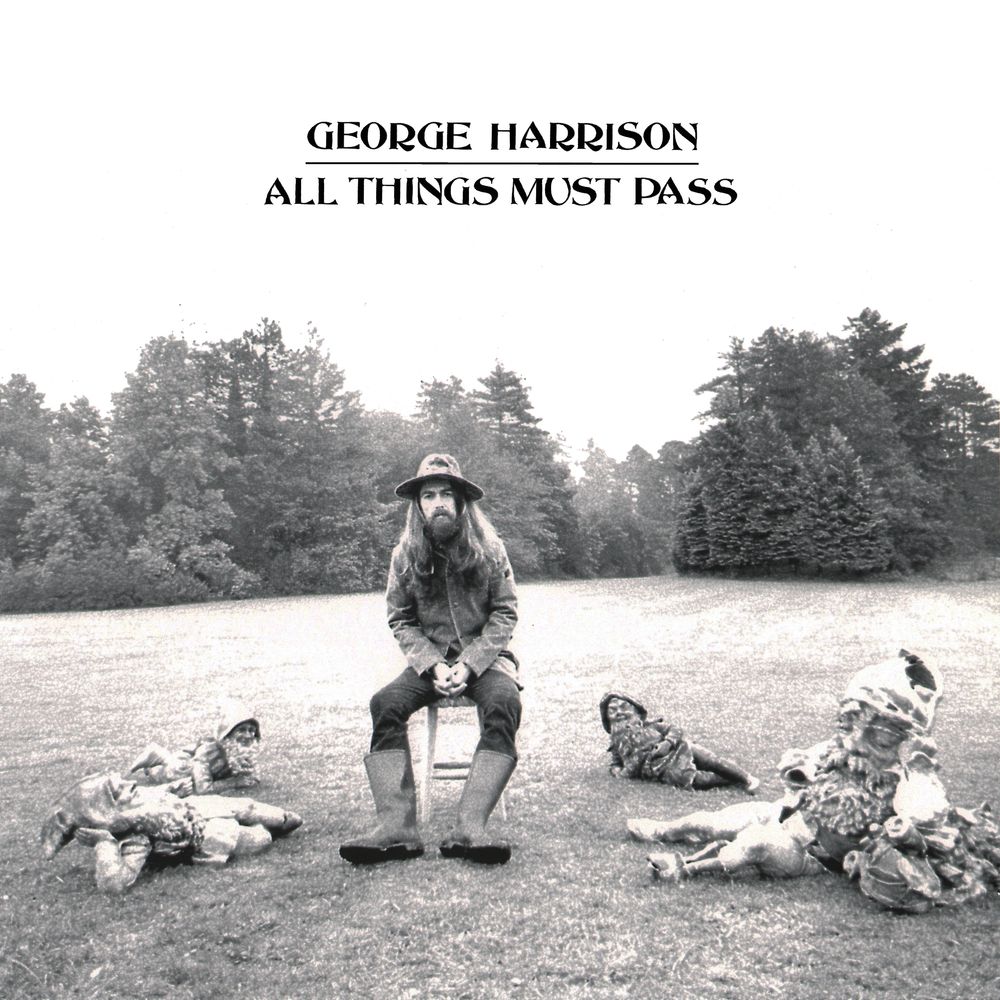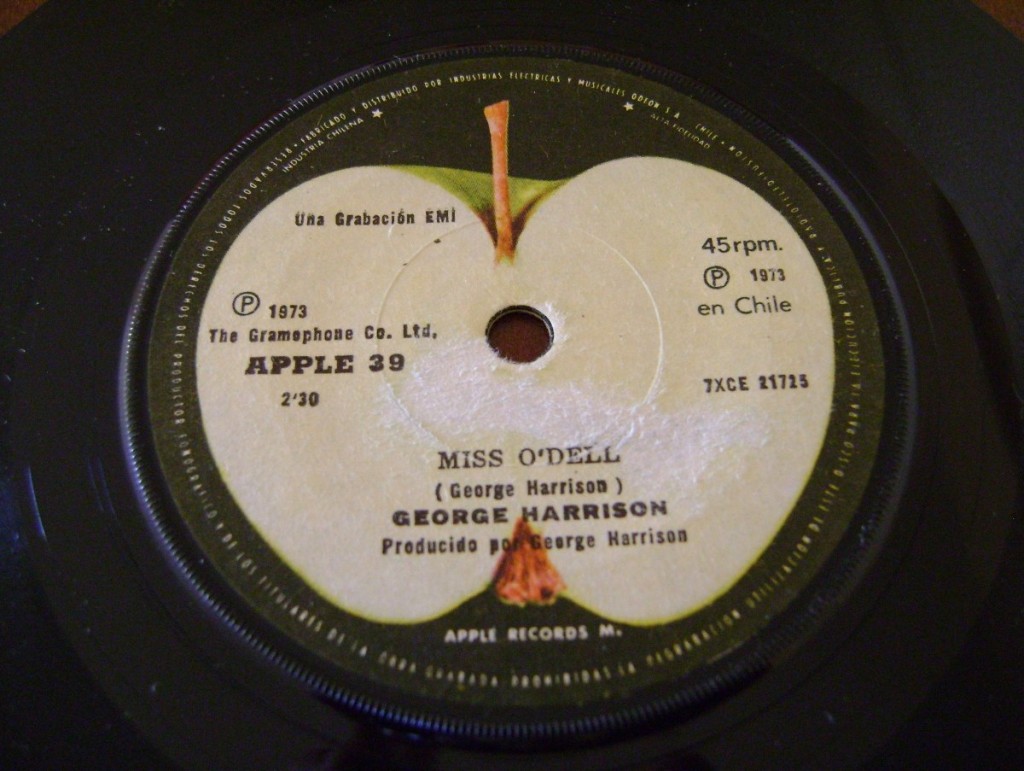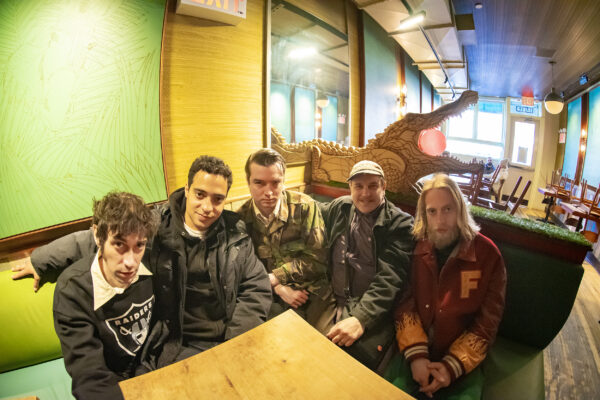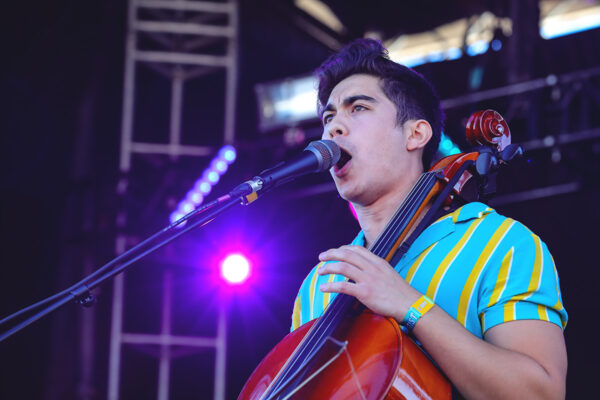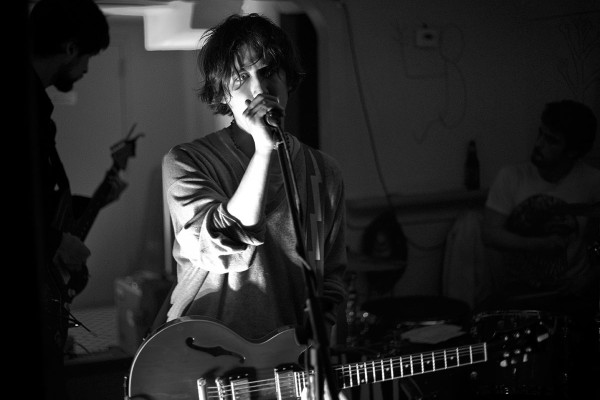“I do believe in fate. I do believe that on a spiritual level, we all have our destiny and our things we need to do in this lifetime, and it felt to me that was mine. And no matter how hard I might have tried to avoid it, it just laid itself right down in front of me. It was like the yellow brick road just kept opening up and you just take one step forward.”
For Chris O’Dell, music has always been as essential as the blood in our veins, the very lens through which she sees the world. Beginning what would become a career in the field with her very first job, a clerical position at the Los Angeles offices of Dot Records, O’Dell left California- and the firm- for England in 1968. Selling her record collection for $200, she parted ways with every precious piece of vinyl she owned in order to afford a one-way plane ticket to London. Invited by press officer Derek Taylor to work for the Beatles and their newly launched Apple Records, she arrived at the label’s first offices on Wigmore Street, completely unaware of all the magic that would follow.
Initially doing odd jobs, she soon found herself working for Apple’s A&R manager, Peter Asher, and later George Harrison. In addition to booking sessions for the Beatles and their roster of Apple artists, she also spent time in the studio with the Fab Four themselves, even lending her voice to the rowdy choir that emerges in the second half of “Hey Jude.” Chronicling her years in the industry and her close friendships with some of it’s most well known personalities, her 2009 book Miss O’Dell: My Hard Days and Long Nights with The Beatles, The Stones, Bob Dylan, Eric Clapton, and the Women They Loved, follows her from the freewheeling bliss of Apple’s earliest days to her later work as one of the first women tour managers in rock. Revisiting her time as both a fly on the wall and an integral component behind-the-scenes, her story and it’s extraordinary vantage point prompted the New York Times to glowingly dub her, “Nick Carraway to classic rock’s Gatsby.”
Active in the business until the mid-1980s, she later embarked on a second career as a therapist and group counselor. Talking to Pancakes and Whiskey by phone, she retraced the events that led to her front row seat to rock’s Renaissance with a level of warmth in her voice that was palpable. Although as she admitted, it was quite a shock to see the Beatles move freely around the Apple offices when she first arrived in England.
“You know they were so far away. I saw them playing in Dodger Stadium and I mean literally far away. They were little dots. And so there was no human contact to them. It almost was like you’d seen them on the screen, you’d heard their music, but they weren’t accessible. So suddenly having them be there in real life form and in the same room as you, in the same building as you, was a little jarring.”
During those early days, O’Dell took any assignment she could in the hopes of eventually securing a more permanent role at the company. Describing how she originally worked there in an unofficial capacity, she laughed as she explained how at that point, everyone else “actually had been hired,” before later saying, “I went over there on a wing and a prayer. Basically, I had to make myself useful and I had to find a position for myself.”
“I was twenty and so it was just a great adventure- it was like the grand adventure. I had a goal and that was to get hired. Everybody else had their jobs to do, it was just me. I mean, the only other person who had a little bit more flexibility was Richard DiLello, who had pretty much done the same thing I did. He was helping Derek, but he wasn’t an English person. You know for them, for the other employees, this was their home, this is where they lived, this is what they did. They had a job. For Richard and myself, we were in a new country and doing our best to try to make the adventure more adventurous, I think.”
A multimedia company created by the Beatles to house projects under various divisions including records, retail, publishing, film and electronics, John Lennon once outlined Apple Corps Ltd. as a commercial enterprise that valued artistic innovation, famously declaring, “We want to set up a system whereby people who just want to make a film about anything don’t have to go on their knees in somebody’s office. Probably yours.” And though financial problems would later strip Apple of it’s original bohemian spirit, O’Dell spoke about the revolutionary nature of the venture and it’s optimistic beginnings, saying, “We just believed, and they believed, that what they were doing was the right thing and it was going to help people and it was going to change things in the music business. And to some degree, it really did.”
“On Wigmore Street there was a tea lady who came through and brought everybody tea. That was standard fare for offices in London at that time. And it wasn’t very big. It was one floor of a building and it wasn’t extravagant. Then we moved into Savile Row into a huge four, five-story building and now there were Cordon Bleu chefs in the kitchen. It got very extravagant and the more people started taking advantage of it- I mean the employees, you know, getting taxi rides home. At that time, it was a sense of entitlement, I think that not everyone had, but some people had. ‘I’m here, I’m working late. I’m working for The Beatles, I’ll get a taxi and put it on the account.’ Now that didn’t do them in, but there were a lot of things that did. The amount of alcohol that was bought and consumed and I think some of their extravagances. So I don’t think it was immediately there, but once we were in Savile Row in ’69 it was becoming more apparent that it was getting harder for them to finance it.”
One of the few staffers to be present for their final live performance, she joined the small audience on the Apple roof as another crowd of curious onlookers gathered on the streets below. No longer “dots in the field” at Dodger Stadium, O’Dell sat only a few feet away from the band on that day in January of 1969, watching as their warm harmonies cut through the blistering cold air. Yet as iconic as the group’s surprise rooftop gig has become, she said that the Beatles had previously discussed performing at all kinds of different places, including the Grand Canyon.
“They had really elaborate ideas of where they could do it, and in the end I think someone said, ‘Well why don’t you just go up on the roof?’ (laughs). And they had to prepare for it because the building was not in the best of shape. They had to prop up the roof to make sure that it held everybody, which is one reason they wouldn’t let all the employees at Apple go up.”
In March of 1970, O’Dell accepted an invitation to work directly for Harrison. Moving into his newly purchased Friar Park home, she quickly forged a family bond with the Beatle and his then wife, Pattie Boyd, who remains one of her closest friends. Bought at a time when the estate was in danger of demolition and in need of repair, she remembered the 120 room Victorian Gothic mansion as an amazing place, although one that could be “exceedingly overbearing” in its size and detail.
“When I lived there, and I think I talked about this in the book, it swallows you up- the house swallows you up. It’s like if you stay there long enough, you change. You become part of the house (laughs). That’s kind of what happens. Who knows why, but that’s what it’s like. It’s just such an overpowering place.” Discussing the renovations and the musician’s hands-on role in personally rehabilitating the property and it’s gardens, O’Dell said that the entire endeavor mirrored Harrison’s artistic nature and deep connection to the world around him.
“He was a highly creative person. And I think that in that place, when he was in the garden, I think he just loved that getting back to the Earth place. Where I can’t imagine the other three doing anything like that. They’d hire somebody (laughs). Again, that goes back to the fact that he kept trying to get back to his roots. Kept trying to get back, not be torn away by all the ego, and that was his spirituality. There’s no doubt about it.”
Present in April when the break-up of the Beatles landed on the front page of the morning newspaper, she spoke about how she went through the “emotional trip” of McCartney’s unexpected announcement to the press through Harrison’s point of view. Although as she explained, no one dwelled on the situation for long, saying, “We quickly recovered from it at the house by thinking, ‘Ok, now George can do his album,’ because he had so much music. John and Paul had such a monopoly on the songs that were put on albums, that for him it was really frustrating. So from his point of view, it was like, ‘Well, OK- now you can do your solo album and get all those songs on there.’”
As Harrison began work on what would become his first solo record, All Things Must Pass, O’Dell scheduled recording sessions and set up a make-shift office in Friar Park’s kitchen. Using a brand-new IBM Selectric typewriter, she compiled the lyrics for every potential album track. Recalling the process in her memoir, she wrote of being handed lyrics scrawled on pages taken from Apple stationary, notebooks and the backs of envelopes. Occasionally, Harrison would take a seat and play the songs she’d just typed on his twelve-string guitar. Describing his creative ambitions and genuine surprise at the album’s later success, she pointed to the different roles that often exist within a unit like the Beatles.
“If you look at the dynamics of a band, you’ve got different positions in the band, kind of like in a family. Paul played the hero and John played the scapegoat or the bad dude, and George was kind of the lost child and Ringo was like the mascot. That’s kind of the family roles. I mean, as a therapist I know all of that now (laughs). So for George, being the lost child in there, being a songwriter, being younger than them, always being highly creative…I mean, his desire for fame was he couldn’t care less about all that at that point because it had gotten bigger than he really wanted it to get. So I think that this was an opportunity, but at the same time, he’d never had to hold the whole thing on his own. The confidence, musically, was not as much there for him because he hadn’t been given that position in the band to grow confidence.”
Although when asked if she ever got the sense that Harrison knew he was making the masterpiece that All Things Must Pass turned out to be, she hinted at the mixed emotions that accompanied the band’s demise. “I just knew that he was excited to be able to really get into songwriting and be able to really do what he wanted to do for a solo. I think he was scared. But as a musician, it was a really good time for him because creatively he was free.”
Continuing to work in the industry long after her stint at Friar Park and the subsequent breakup of the Beatles, O’Dell accepted a position with the other biggest band in the world in 1971. Working as the personal assistant to the Rolling Stones, she was entrusted with organizing details in their professional and personal lives, accompanying them on tour, booking recording sessions and typing lyrics for the soon-to-be-released Exile on Main Street. Reflecting on her time in the studio with different artists, she spoke specifically about how the Beatles and the Stones differed in their methods.
“It’s very different for each group. The Beatles were pretty…I mean, it started at a certain time and it ended when it ended, but they were much more on task. The Stones always showed up late. Things got started always very late and they were OK to play all night, into the day. They were a much looser group, let me put it that way, of the two groups that I spent the most time with in the studio.”
Recounting the mesmerizing experience of hearing a song in its every stage of development, she fondly recalled what it was like to see a composition take shape in real time. After saying that you never really knew what the finished product would be, she compared the creative process of those she knew as being akin to “cooking really, really excellent food- just adding this and adding that.” Even now, those different approaches underline just how crucial it was for her to be able to adapt to the style and personality of each artist she worked with.
“I’d go from one job to the next job, working with a different band. And it was like, ‘Wow, Ok…’ I had to adjust to how they operate. It was like switching companies all the time in a job (laughs). You have to learn the dynamics of the band in order to really be there for them with what I did.” Discussing her years as a tour manager for a host of artists including Bob Dylan, Santana, Fleetwood Mac, Linda Ronstadt, Electric Light Orchestra, Queen and Crosby, Stills, Nash and Young, O’Dell talked about the rigors of the road and the responsibilities behind the scenes.
“There was never an average day. I mean, there were normal things that had to happen everyday. If we had a flight to catch, then it was getting everybody up and out. If we had a show to do, it was organizing for the show. So it went along with what was going on that day, but you never knew what was going to show up (laughs). You never knew what was going to happen. It was exciting. In fact, if you to do that 365 days a year, you wouldn’t be able to do it. It was that hard of work.” And while the time leading up to a show could be hectic, every minute after was a chance for both the band and their crew to relax and unwind.
“After a show was usually downtime. On most of the tours I did- the big ones- we always had a room, a suite, that was just for everybody to come into. There was always food and there was always drink and other things. So after the show, everybody would go there. That was my time also. Even if there were things to do, at least then you had a little let down time. I remember there were plenty of times when I’d just hang out and party and socialize with everybody. In the middle of it, somebody might say, ‘Oh, my girlfriends coming tomorrow, can you arrange a car?’ (laughs). But overall, it felt like a downtime.”
After leaving the business and starting a family in the mid 1980s, O’Dell eventually moved back to where she grew up in Tucson, Arizona. Enrolling in school soon after splitting from her first husband, she earned a college degree and a master’s degree in counseling psychology and began a career as a therapist. Now remarried and living in Honduras, she spoke about the eighties as being a transitional period, before talking about the peace that has come with true retirement.
“It was like living in the real world and that was hard. That was hard to make that switch, but I had to because I was a mother and I had a son, and I was a single mother. And I think that pulling away from all of that life, it was difficult. Had I stayed in London and had a life there, I probably would have remained close to that group of people. But I moved to Arizona and nobody ever comes here (laughs). But then after I decided not to be a therapist anymore, my husband and I moved. We went looking for a quiet paradise and we found one. So to me, that’s the most peaceful I’ve ever been. I’m in Tucson now, but I can hardly wait to get back to the island (laughs). That’s where life is just easy.”
Offering a perspective that so few have, her memoir captures both her personal and professional journey, while also detailing key moments in rock history with a keen sense of wonder and affection. And though it remains her own story with life’s own distinct set of peaks and valleys, her recollections can’t help but expand on the essence and aura of the era and it’s music.
Not one to save much, she has one trunk of memorabilia and keepsakes that stretch back to those days. Although after calling moments like having her picture appear on the back cover of Exile on Main Street just one of the many “nice things to have to remember everything by,” she said that Harrison’s 1973 song bearing her name remains one of the biggest thrills of them all. Released as a B-side, “Miss O’Dell,” remains a fan favorite, as well as something the real Miss O’Dell has always considered “an honor” of her close friend George.
Today, her memories remain vivid and bright, forever woven together by the music and her own unique view from the crow’s nest of rock’s most studied and celebrated generation.
Article: Caitlin Phillips

